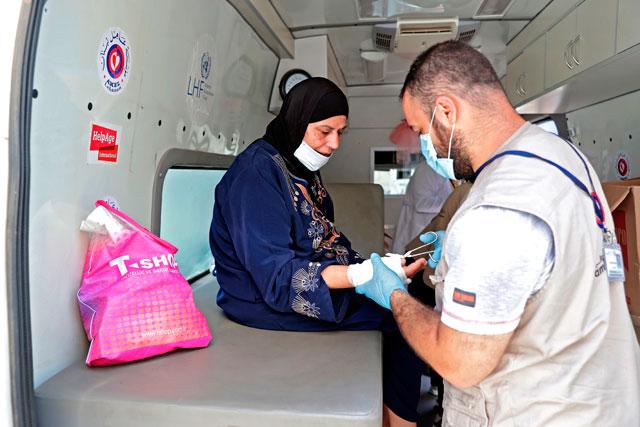- International News
- Tue-2020-08-18 | 04:29 pm

"Public and private hospitals in the capital in particular have a very limited capacity, whether in terms of beds in intensive care units or respirators," the minister, Hamad Hassan, told a press conference.
"We are on the brink, we don't have the luxury to take our time," he warned, calling for authorities to take the "hard decision" to impose a new two-week lockdown to stem the spread of the virus.
Lebanon has seen a spike in coronavirus-related cases and deaths in recent weeks, and they have hit a new record in the aftermath of the massive explosion that ripped through large parts of Beirut on August 4.
The disaster — which killed 177 people and wounded more than 6,500, many by falling debris and flying glass as windows shattered — caused pandemonium in the capital's already pandemic-stretched hospitals.
Lebanon reported a record 439 new infections on Sunday, bringing the total number of infections to 8,881, including 103 deaths since the start of the outbreak in February.
A previously planned lockdown was scrapped in the wake of the explosion.
"In the capital, the intensive care units and the departments set up for the coronavirus in public hospitals are full," the minister told Voice of Lebanon radio earlier.
"In most private hospitals that receive coronavirus patients, intensive care unit beds are occupied already by COVID-19 patients," he added.
Maas said the UAE had "shown that it has the ability to make an important contribution to peace in the region”, and added that now he also hoped "to see encouraging signs from Abu Dhabi on the issue of Libya”.
"The United Arab Emirates is in a position to influence General Haftar, and we expect it to do so, in the spirit of the Berlin Process,” he said.
"Only those who participate in a political process will be part of Libya’s future,” he added.
Maas said that in Libya he also wanted to discuss the fate of migrants stuck in detention centres, where human rights groups have reported widespread abuses and mistreatment.
"For a long time we have been calling for the closure of the detention centres and the establishment of alternatives in urban regions,” he said, calling for "effective measures to finally combat human trafficking networks”.













